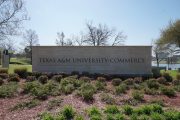
If you want to get an idea of how Common Core Standards are being implemented on the kindergarten level, Bellingham, Washington, is the place to go. The school board has proudly announced that it has adopted full-day kindergarten and spent much time and effort creating an appropriate curriculum. It’s not going to be easy keeping five-year-olds productively occupied for a full school day. But Bellingham’s teachers believe they have found a way to do it effectively.
An article by teacher Nina Bellew, published online by New America EdCentral Highlights, March 27, 2015, provides us with an overview of the new project. The district’s transition to full-day kindergarten started six years ago, and Ms. Bellew took part in those initial six full-day kindergarten classrooms. So she speaks from hands-on experience when she writes:
One important lesson from Bellingham — and worth calling attention to right from the start — is that a seamless shift cannot happen without an intentional plan to train teachers and principals on how to maximize the new time to teach in the ways that young children learn best…. We investigated the HighScope Curriculum, which provided us the opportunity to reflect on best practices and shape our pedagogical beliefs and foundations.
What is the HighScope Curriculum? According to their website:
HighScope Educational Research Foundation is an independent nonprofit research, development, training, and public outreach organization with headquarters in Ypsilanti, Michigan. HighScope’s mission is tolift lives through education.While HighScope conducts research in a variety of areas, our organization is perhaps best known for its landmark Perry Preschool Study, a longitudinal study demonstrating the effectiveness of the HighScope Preschool Curriculum and the lasting effects of high-quality preschool education.
HighScope was founded by the late educational psychologist David Weinkart, who received his Ph.D in education and psychology at the University of Michigan. In 1957 he began working as a school psychologist at the Ypsilanti Public Schools in the state. Appalled by the high dropout rate among black children, he helped form a committee of elementary educators who designed a pre-school program at Ypsilanti’s Perry Elementary School to see if an early academic head-start for these black children would improve their academic prospects in the years ahead. They found that it did. It later became the basis for the federal government’s Head Start program. HighScope has since become a primary source of curriculum development for pre-school projects.
The six kindergarten teachers who had been involved in developing the Bellingham curriculum produced a model outlining the materials, daily structures, and pedagogical philosophies for the program. Ms. Bellew writes:
The model … suggests that teachers think about their year in this way: the first 9 weeks looks more like preschool, the next 18 weeks is implementing a high-quality kindergarten program and the final 9 weeks looking more like a 1st grade classroom. The students transition throughout the year at their own pace.
Authentic and engaging experiences are at the heart of each day. I don’t teach through thematic units. Teddy bear and alien units have no place in a high-quality kindergarten classroom. I teach readers, writers, and mathematicians. This is where the Common Core State Standards rigor comes into play. I teach students how to love reading through engaging read alouds and shared reading texts. I teach them how to tell a story through wordless picture books, developing their oral language and comprehension skills. I teach students how to love writing through books, interactive writing, shared writing and the writing workshop model. Students learn to tell a story through a picture using shapes and lines.
Unfortunately, Ms. Belew’s literacy program is designed to have the children use their right image-oriented brains to perform the functions of the left-phonetic-oriented brain, which leads to brain impairment. Teaching reading with wordless picture books is a dead giveaway that their literacy program is image-oriented rather than phonetically-oriented. Parents should be aware of this.
Ms. Bellew continues:
Play is at the heart of what five- and six- year-olds need to make meaningful connections. This is when the Common Core State Standards can be practiced and made sense of for children. Play is not a “free-for-all” but a methodically planned, structured time in the day when students can have the power to create and explore and play.
Students can play restaurant and take orders and create the menu, they can make invitations for the birthday party they are throwing for their peers or paint a picture of a rainbow and label it: “rnbo”. This is the perfect time for formative observational assessment. I can note that students can follow a plan and read an instructional manual to create the Lego house, I can take note of the late invented spelling stage of the child who writes the menu for the restaurant.
Invented spelling has been thoroughly discredited as a way to make sure that children never learn to spell correctly. One of the first principles of elementary education is to prevent children from developing bad habits. They should be taught the correct way to hold a stylus, form cursive or manuscript letters, and sound out words. Although HighScope advocates teaching phonemic awareness and letter sounds, the teachers at Bellingham seem to have decided to go the whole language route with its sight reading and invented spelling.
Meanwhile, the number of students in the United States attending full-day kindergarten has increased greatly since the 1970s. In 1977 only 28 percent of the students attended full-day kindergarten. In 2012 it was up to 76 percent. Taxpayers may not like it, but working parents do because it saves them the expense of private daycare. Currently, 11 states and Washington, D.C., fund full-day kindergarten for all students. In most states, however, the decision to offer full-day kindergarten is made at the local level.
Will full-day kindergarten improve public education? Since the progressive aim of the public schools is to dumb down Americans, it is unlikely that the process will be reversed in kindergarten. Indeed, the teachers in Bellingham seem determined to destroy the lives of their students in the kindest ways possible. You can’t have high-quality education without high literacy, which can only be achieved by intensive, systematic phonics which provides maximal stimulus for the language-oriented left brain.
Bellingham’s “methodically planned, structured” play time negates the spontaneous dynamism of early childhood in which children learn to speak their own language and deal with reality all by themselves. In play they imitate adult life. But the Bellingham teachers will set up play experiences that will advance their own pedagogical aims.
So, parents beware. Your children will be dumbed-down in the cleverest ways devised by America’s progressive educators.




